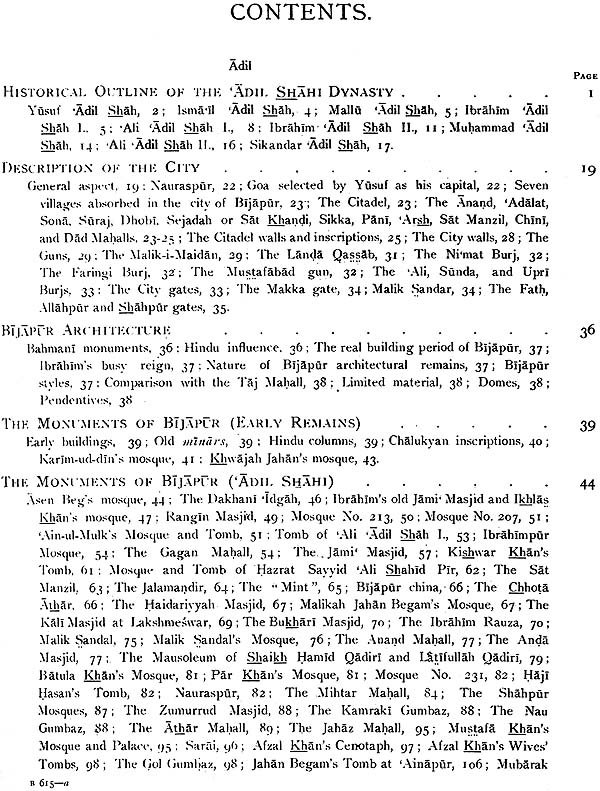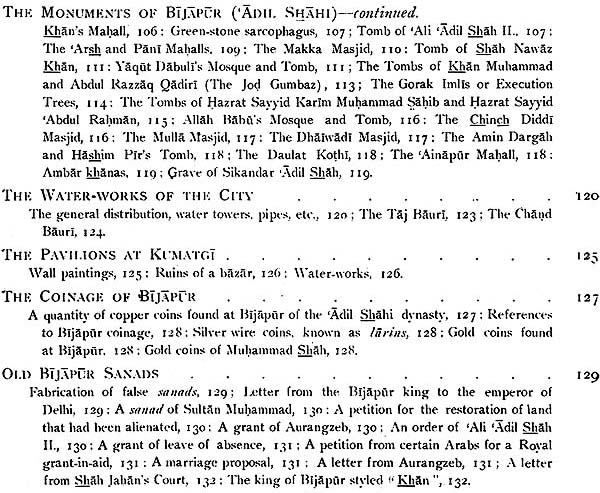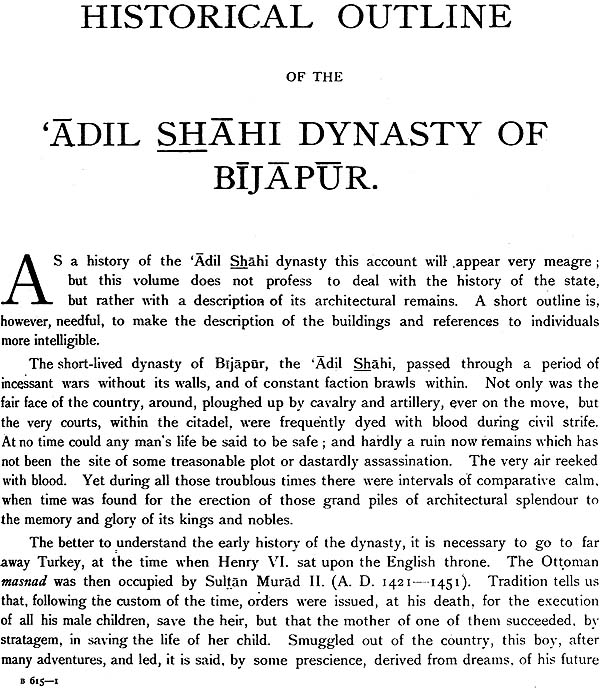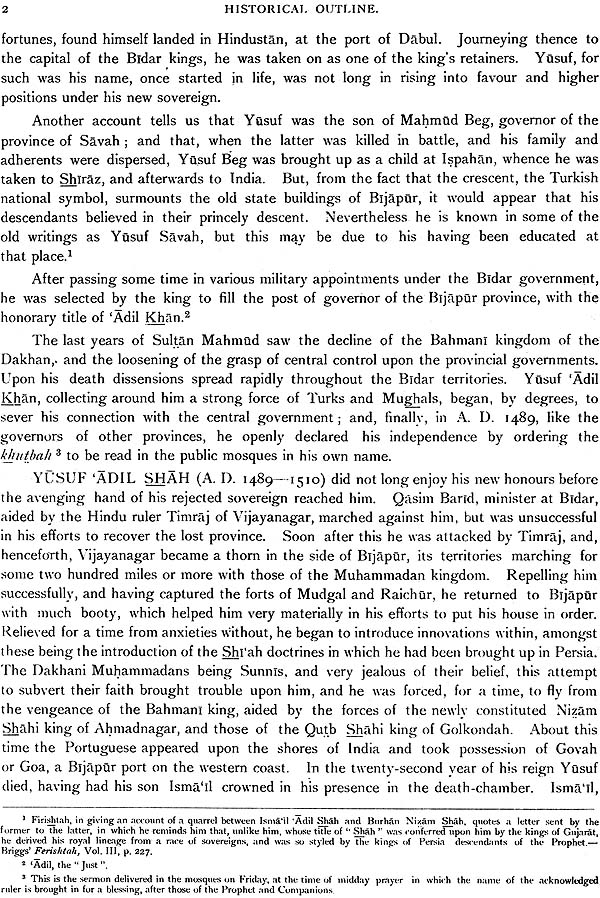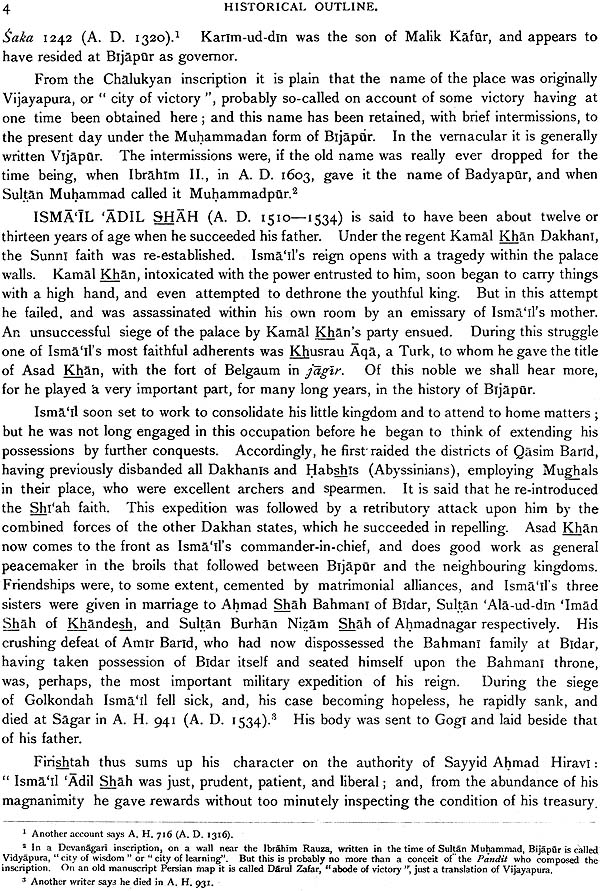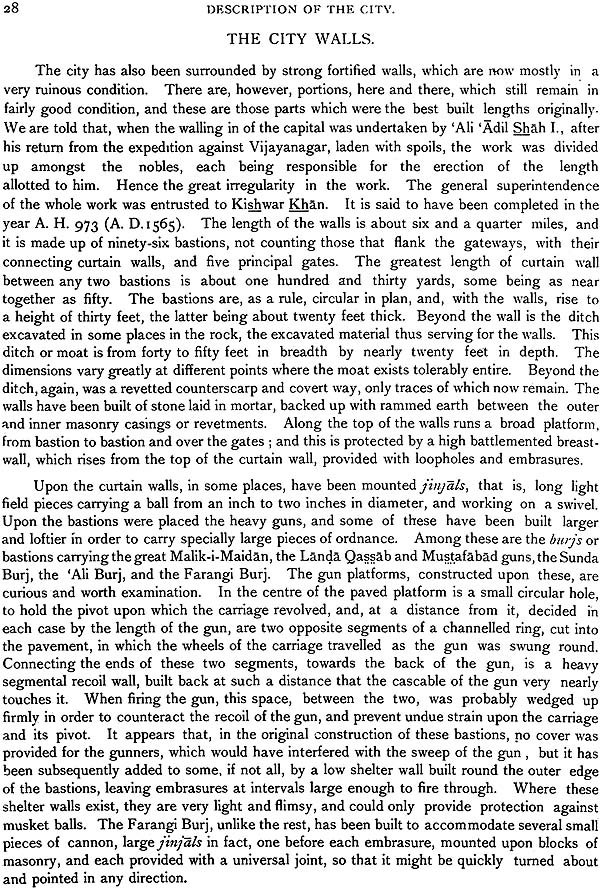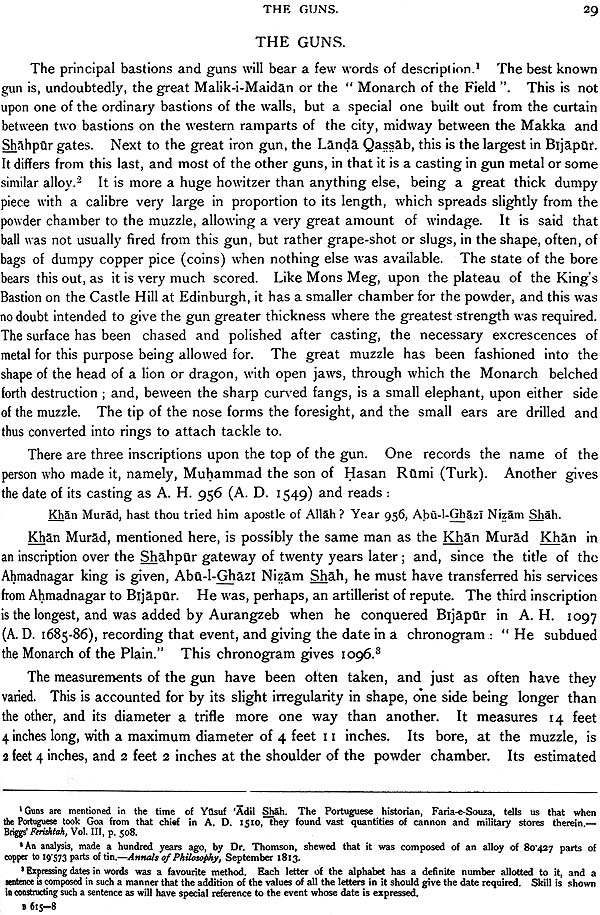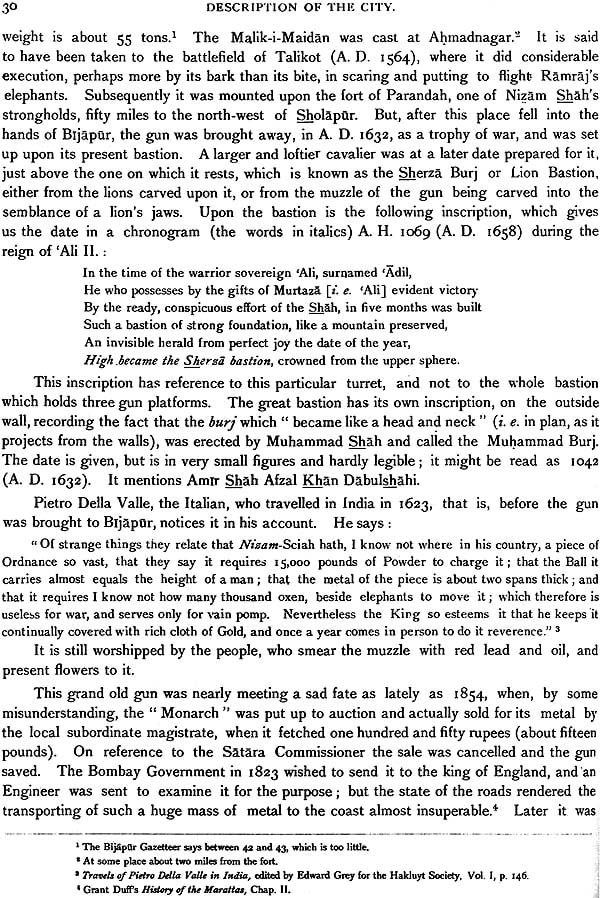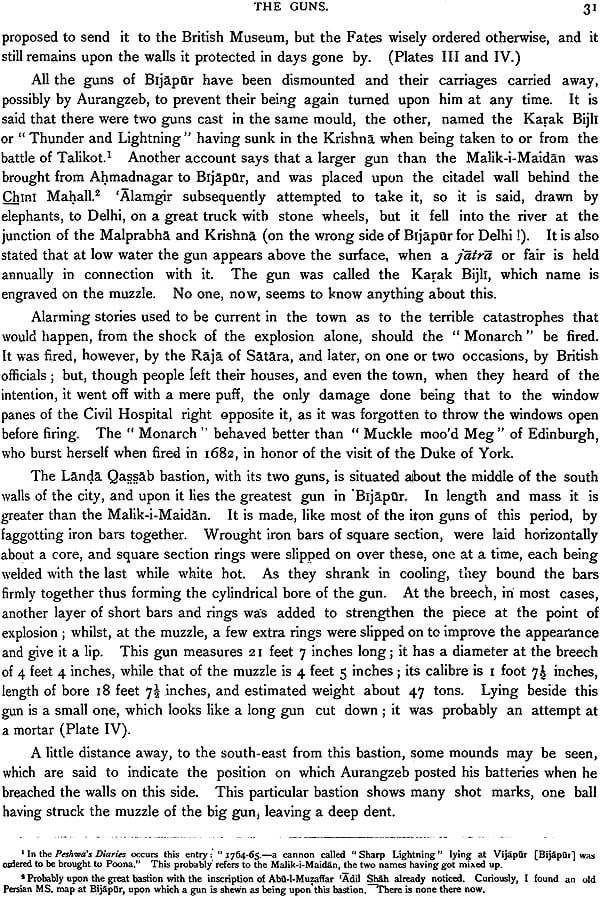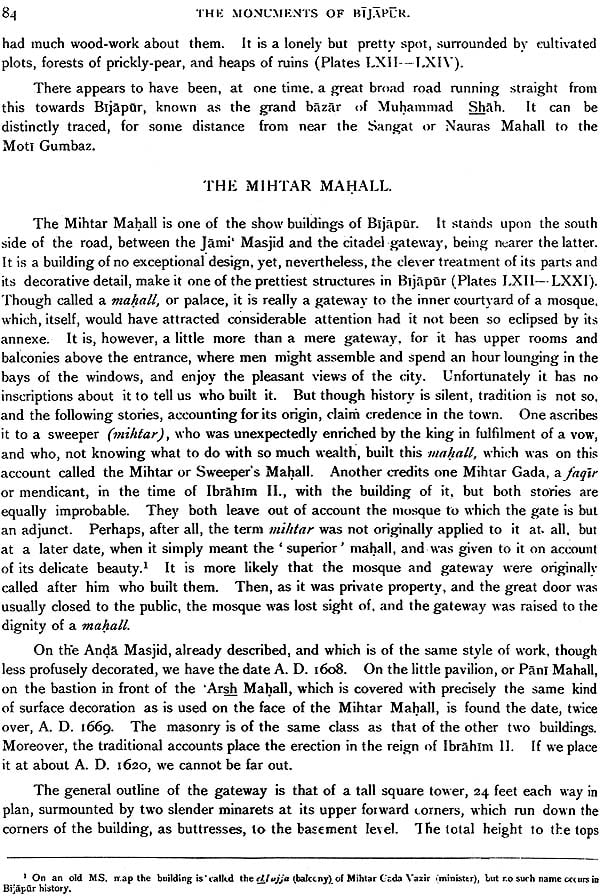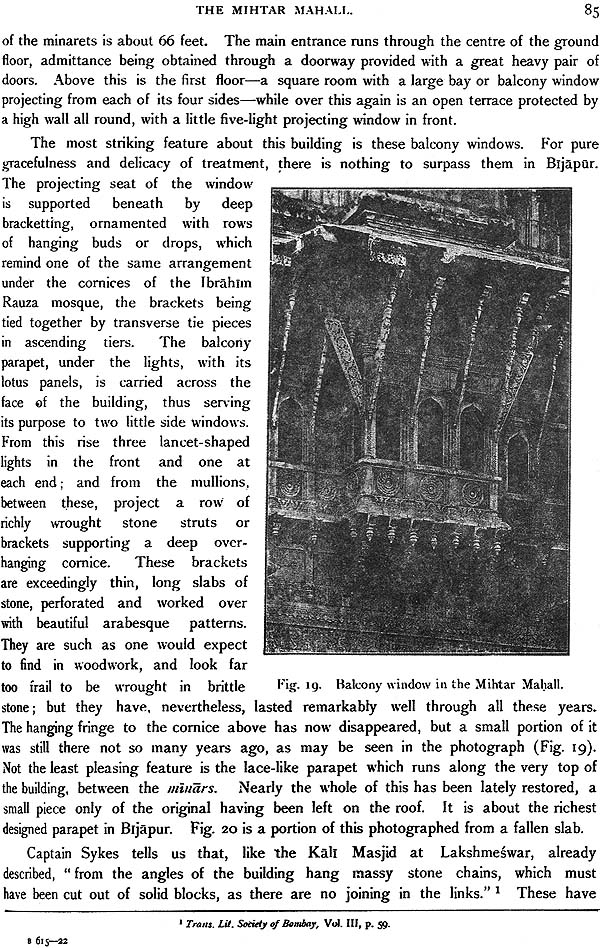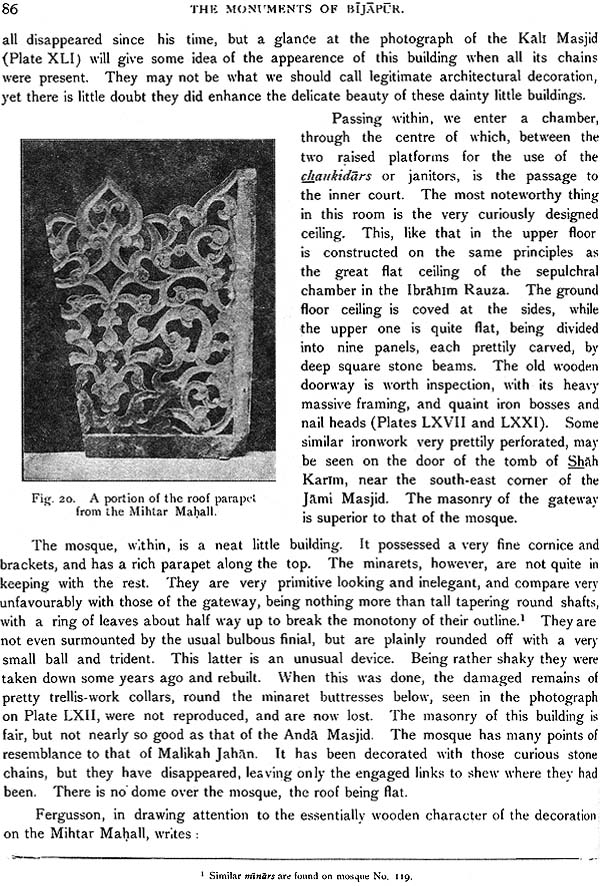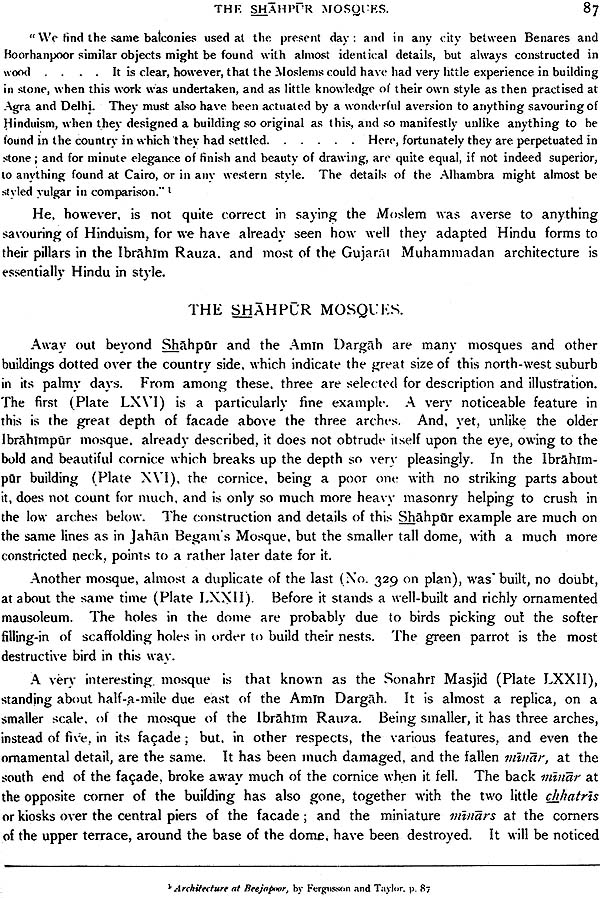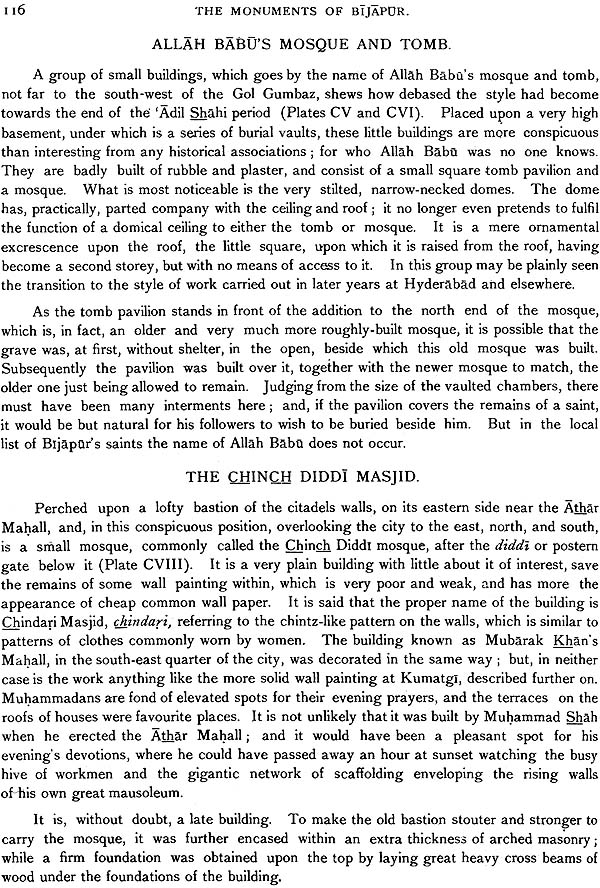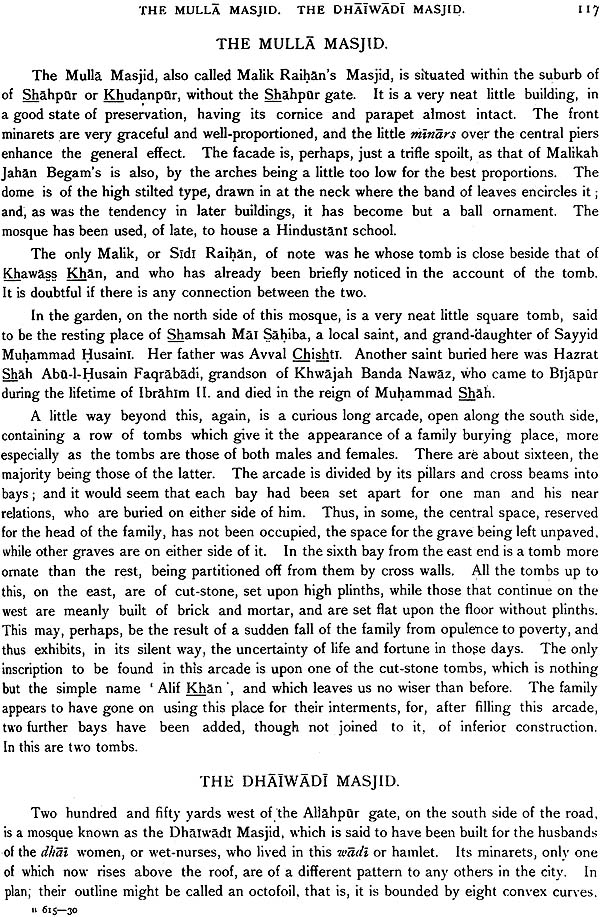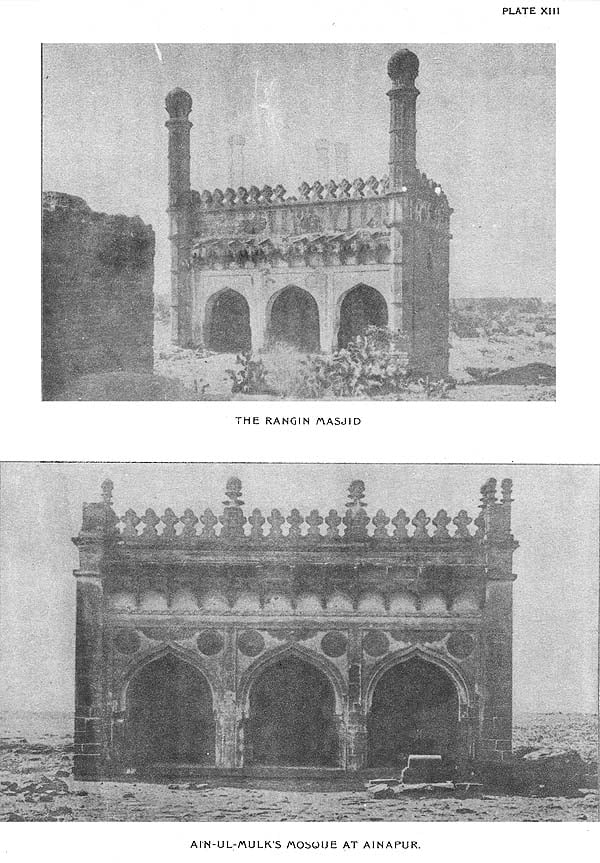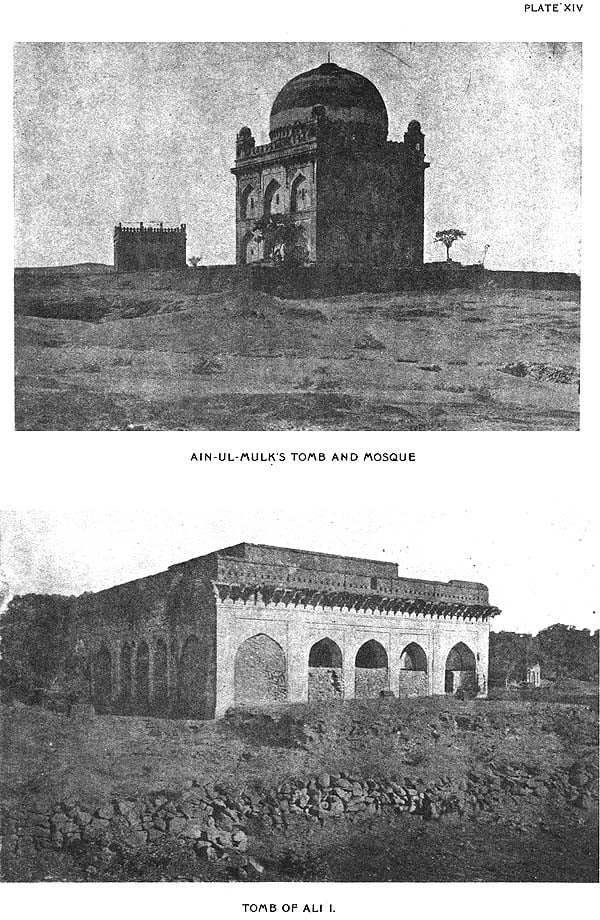
Bijapur and its Architectural Remains (With an Historical Outline of The 'Adil Shahi Dynasty)
Book Specification
| Item Code: | NAL768 |
| Author: | Henry Cousens |
| Publisher: | Archaeological Survey of India |
| Language: | English |
| Edition: | 1996 |
| Pages: | 464 (116 B/W Illustrations) |
| Cover: | Hardcover |
| Other Details | 10.5 inch x 8.0 inch |
| Weight | 1.20 kg |
Book Description
After the sumptuous volumes, brought out some fifty years ago, of Architectural Illustrations of the Principal Buildings at Bijapur by Mr. James Fergusson and Captain Hart, R.E., and The Architecture at Bijapur by Colonel Meadows Taylor and Mr. Fergusson, it may seem superfluous to bring out another on the same subject. But those volumes, limited, as they were, to a very small edition, are now out of print and are very rare. The first contains no photographs and scant descriptive matter, and, like the second, treats of very few of the buildings of the city. The second is, unfortunately, full of blunders, due, no doubt, to Colonel Meadows Taylor having written up his account at a distance from the place, and some time after his visit, from imperfect notes. For instance, two photographic views of the same mosque, that of Karim-ud-din in the citadel, taken from different points of view, are described as two different buildings. Many of the others are wrongly labelled, and a mosque at Lakshmeswar, in the Dharwar district,. is described as being at Adoni, to the south of Raichur. These mistakes have led Mr. Fergusson astray in his remarks upon some of the buildings.
The illustrations, which form the most important feature of this volume, and which will enable the student to form his own ideas and conclusions, have been prepared during the frequent and lengthened visits of the Survey party to the old capital-at first under the direction of Dr. James Burgess, late Director General of Archeology, and, later, under my own personal control. The drawings are the work of Indian draftsmen recruited from the schools of art and further trained to the particular pen and ink work required of them.
Except where otherwise stated, the translations .of the numerous inscriptions referred to were made by the late Mr. E. Rehatsek who was, for many years, Professor and Examiner In Persian and Arabic in the University of Bombay.
The printing of the volume has been entrusted by the Government of Bombay to their Central Press, at Bombay, for the letterpress; and to the Government Photozincographic Department, at Poona, for the illustrations. To the Superintendents of both establishments I tender my best thanks for the very great pains they have taken to turn out the best possible results.
